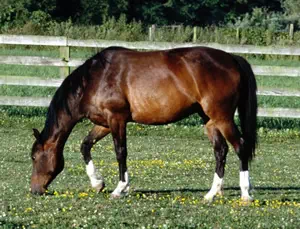|
 WASHINGTON WASHINGTON
Carcass Disposal State Regulations
General
Depending on circumstances, large animal carcass disposal may be regulated by a state's solid waste, medical waste, agriculture, or emergency management regulations. If your state does not provide specific guidance or regulations relating to large animal carcass disposal, check with your local health department, or city/county laws and ordinances.
In addition, during emergency situations and disasters (e.g., blizzards, floods, hurricanes, mass die-offs, etc.), consult with your local emergency officials, your state emergency planning agency, or the state veterinarian, to determine approved methods of carcass disposal.
Applicable Agencies and Regulations for Washington
Washington Department of Agriculture
Address: P.O. Box 42560, 1111 Washington St. SE, Olympia, WA 98504-2560
Contact Information: http://agr.wa.gov/ContactUs
Rules and Regulations: WAC 16-25: Disposal of dead livestock. The purpose of this rule is to prevent the transmission of livestock diseases and to protect the public health, safety, and welfare and Washington state's livestock industry through the proper routine disposal of carcasses of livestock that have died because of disease. A carcass must be disposed of within 72 hours of the time of death or discovery to avoid nuisance odors or disease. Disposal options addressed:
- Rendering: Carcasses may be rendered only by a rendering plant licensed under chapter 16.68 RCW, Disposal of dead animals.
- Landfilling: Carcasses may be disposed of at a privately or publicly owned landfill with prior approval of the local health officer and the landfill operator, and permitted in accordance with chapter 70.95 RCW and chapters 173-350 and 173-351 WAC.
- Burial: On the property where the livestock animal dies with approval of the property owner. Must be buried to a depth so that no part of the carcass is nearer than three feet to the natural surface of the ground. Every part of the carcass must be covered with at least three feet of soil within 24 hours of placement in the ground. It must be buried at least 300' from any well, spring or body of surface water, at least 300' from any residence not owned by the owner, at least 50' from any property line between parcels under different ownership, and not in a low-lying area subject to seasonal flooding or within a hundred-year flood plain or in a manner that will impact ground water. Each burial site is limited to 1000 lbs of carcasses or one livestock animal weighing more than 1000 lbs. Carcass burial is not allowed on a property of less than 5 acres, except for the burial of a single carcass weighing less than 200 lbs.
- Burning: Open burning is not allowed. Complete incineration of carcasses to a mineral residue must be performed in an approved incineration facility or by a mobile air curtain incinerator, and appropriate permits must be obtained.
Composting: Composting must be conducted in compliance with chapter 70.95 RCW and chapter 173-350 WAC.
- Other Methods: Natural decomposition and digestion (see website for more information).
Washington Department of Health
Address: 101 Israel Road SE, Tumwater, WA 98501
Contact Information: http://www.doh.wa.gov/contact.htm
Rules and Regulations: WAC 246-203-121 Disposal of dead animals. Within 72 hours, dead animals must be either buried, landfilled, incinerated, composted, rendered or disposed by another method approved by the local health officer. Disposal options addressed:
- Rendering: Allowed.
- Landfilling: Allowed.
- Burial: Allowed
- Burning: Allowed.
- Composting: Composted in compliance with chapter 70.95 RCW, Solid waste management - Reduction and recycling (see below)
Rules and Regulations: RCW 70.95.306: Composting of bovine and equine carcasses - Guidelines - Exemption from solid waste handling rules.The department of ecology and the department of agriculture, in consultation with the department of health, shall make available to livestock producers clearly written guidelines for the composting of bovine and equine carcasses for routine animal disposal (see Washington Department of Ecology). Following these guidelines and the meeting of certain conditions will exempt producers from the solid waste handling rules.
More Information
On-Farm Composting of Livestock Mortality (Washington Department of Ecology, 2005). Guidelines to provide Washington bovine and equine producers and those that provide technical assistance to the producers with an understanding of how to comply with regulatory and recently revised statutory requirements. Disposal options addressed:
- Composting: Provides basics of composting large livestock as one possible animal mortality tool.
- Other Methods: There are numerous exemptions for composting of agricultural waste found in the compost section, WAC 173-350-220. You are encouraged to contact the Department of Ecology or your local jurisdictional health department to confirm whether an exemption applies. Offal and other processing wastes can fall into either the agricultural waste category or industrial waste category, depending where slaughter and butchering occurs. The specific regulation that applies to composting these materials will depend on origins and some other factors. Contact either the Department of Ecology or local JHD.
The Cornell Waste Management Institute (CWMI) maintains a database of carcass disposal state regulations promulgated by state environmental, agricultural and other agencies. There may be additional information on this site, not found on VetCA, that can be helpful to veterinarians, ranchers and farmers. Click here to access the CWMI information for Washington.

Choose another state
|

